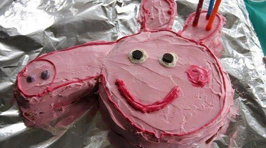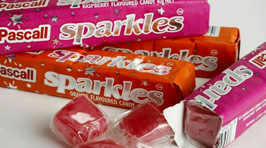15 Science-Backed Ways To Fall Asleep Faster
Loading...
-
1/17
 1/17
1/17 -
2/17
 2/17
2/17 -
3/17
 3/17 Try to force yourself to stay awake: Reverse psychology may alleviate excessive sleep anxiety. A small study conducted at the University of Glasgow found that sleep-onset insomniacs who were instructed to lay in bed and try to stay awake with their eyes open fell asleep quicker than participants told to fall asleep without this “paradoxical intention” (PI).
3/17 Try to force yourself to stay awake: Reverse psychology may alleviate excessive sleep anxiety. A small study conducted at the University of Glasgow found that sleep-onset insomniacs who were instructed to lay in bed and try to stay awake with their eyes open fell asleep quicker than participants told to fall asleep without this “paradoxical intention” (PI). -
4/17
 4/17 Get up and do something for 10 minutes: If you wake up in the night and can’t get back to sleep within 15 minutes, get out of bed and do an activity that requires your hands and your head, like a jigsaw puzzle or a coloring book, says Richard Wiseman, author of 'Night School: Wake up to the power of sleep'. Stay away from TV and digital screens, whose blue light has been proven to suppress melatonin.
4/17 Get up and do something for 10 minutes: If you wake up in the night and can’t get back to sleep within 15 minutes, get out of bed and do an activity that requires your hands and your head, like a jigsaw puzzle or a coloring book, says Richard Wiseman, author of 'Night School: Wake up to the power of sleep'. Stay away from TV and digital screens, whose blue light has been proven to suppress melatonin. -
5/17
 5/17 Hide your clock: Do yourself a favor - hide the clock. Constantly checking the time only increases your stress, making it harder to turn down the dial on your nervous system and fall asleep. "If you stare at the clock, it increases your stress and worry about not falling asleep," says Meltzer.
5/17 Hide your clock: Do yourself a favor - hide the clock. Constantly checking the time only increases your stress, making it harder to turn down the dial on your nervous system and fall asleep. "If you stare at the clock, it increases your stress and worry about not falling asleep," says Meltzer. -
6/17
 6/17 Cool your room: When you’re falling asleep, your body temperature drops slightly, which some experts believe actually helps the process along, according to the Harvard Medical School. The National Sleep Foundation recommends a bedroom temperature of 15 to 19 degrees for the most sleep-friendly conditions.
6/17 Cool your room: When you’re falling asleep, your body temperature drops slightly, which some experts believe actually helps the process along, according to the Harvard Medical School. The National Sleep Foundation recommends a bedroom temperature of 15 to 19 degrees for the most sleep-friendly conditions. -
7/17
 7/17 Take a warm shower before bed: Warming your body up with a hot shower an hour before bed and then stepping into cooler air will cause your body temperature to drop more precipitously. Studies show that this rapid temperature decrease slows your metabolism faster and prepares your body for sleep.
7/17 Take a warm shower before bed: Warming your body up with a hot shower an hour before bed and then stepping into cooler air will cause your body temperature to drop more precipitously. Studies show that this rapid temperature decrease slows your metabolism faster and prepares your body for sleep. -
8/17
 8/17 Wear socks to bed: Researchers from a Swiss study observed that warm feet and hands were the best predictor of rapid sleep onset. Shifting blood flow from your core to your extremities cools down your body, working in concert with melatonin.
8/17 Wear socks to bed: Researchers from a Swiss study observed that warm feet and hands were the best predictor of rapid sleep onset. Shifting blood flow from your core to your extremities cools down your body, working in concert with melatonin. -
9/17
 9/17 Immerse your face in cold water for 30 seconds: If you’re anxious or distressed at bedtime, the best medicine is a face full of ice-cold water. When you’re upset, your nervous system desperately needs to be reset to help you calm down. Submerging your face in a bowl of cold water triggers an involuntary phenomenon called Mammalian Dive Reflex, which lowers your heart rate and blood pressure.
9/17 Immerse your face in cold water for 30 seconds: If you’re anxious or distressed at bedtime, the best medicine is a face full of ice-cold water. When you’re upset, your nervous system desperately needs to be reset to help you calm down. Submerging your face in a bowl of cold water triggers an involuntary phenomenon called Mammalian Dive Reflex, which lowers your heart rate and blood pressure. -
10/17
 10/17 Use the “4-7-8” method: The “4-7-8” breathing technique is purported to help you fall asleep in under a minute. The method is said to relax you by increasing the amount of oxygen in your blood stream, slowing your heart rate, and releasing more carbon dioxide from the lungs. http://www.thecoast.net.nz/videos/asleep-in-60-seconds-4-7-8-breathing-technique/
10/17 Use the “4-7-8” method: The “4-7-8” breathing technique is purported to help you fall asleep in under a minute. The method is said to relax you by increasing the amount of oxygen in your blood stream, slowing your heart rate, and releasing more carbon dioxide from the lungs. http://www.thecoast.net.nz/videos/asleep-in-60-seconds-4-7-8-breathing-technique/ -
11/17
 11/17 Scent your bedroom with lavender: Not only does lavender smell lovely, but the aroma of this herb may also relax your nerves, lower your blood pressure, and put you in a relaxed state. A study at Wesleyan University found that subjects who sniffed lavender oil for two minutes at three 10-minute intervals before bedtime increased their amount of deep sleep and felt more vigorous in the morning.
11/17 Scent your bedroom with lavender: Not only does lavender smell lovely, but the aroma of this herb may also relax your nerves, lower your blood pressure, and put you in a relaxed state. A study at Wesleyan University found that subjects who sniffed lavender oil for two minutes at three 10-minute intervals before bedtime increased their amount of deep sleep and felt more vigorous in the morning. -
12/17
 12/17 Listen to music: Studies have shown that classical music, or any music that has a slow rhythm of 60 to 80 beats per minute, can help lull you to sleep. In a 2008 study, students aged 19 to 28 who listened to relaxing classical music for 45 minutes before bed showed significant improvement in sleep quality. Bonus: They also reported decreased symptoms of depression.
12/17 Listen to music: Studies have shown that classical music, or any music that has a slow rhythm of 60 to 80 beats per minute, can help lull you to sleep. In a 2008 study, students aged 19 to 28 who listened to relaxing classical music for 45 minutes before bed showed significant improvement in sleep quality. Bonus: They also reported decreased symptoms of depression. -
13/17
 13/17 Eat dinner by candlelight: When it comes to sleep, the less blue light you expose yourself to in the hours before bedtime, the better. Light of any kind can suppress your body’s production of melatonin, but blue light waves do so more powerfully, says Harvard Health Publications. Give yourself a romantic break from all the blue and eat dinner by candlelight.
13/17 Eat dinner by candlelight: When it comes to sleep, the less blue light you expose yourself to in the hours before bedtime, the better. Light of any kind can suppress your body’s production of melatonin, but blue light waves do so more powerfully, says Harvard Health Publications. Give yourself a romantic break from all the blue and eat dinner by candlelight. -
14/17
 14/17 Picture your favorite place: Rather than counting sheep, visualise an environment that makes you feel calm and happy. The key to success is thinking of a scene that’s engaging enough to distract you from your thoughts and worries for a while.
14/17 Picture your favorite place: Rather than counting sheep, visualise an environment that makes you feel calm and happy. The key to success is thinking of a scene that’s engaging enough to distract you from your thoughts and worries for a while. -
15/17
 15/17 Practice progressive relaxation: Recommended by the National Sleep Foundation as a way to fall asleep fast, progressive muscle relaxation involves slowly tensing and then relaxing each muscle in your body to help your body relax.
15/17 Practice progressive relaxation: Recommended by the National Sleep Foundation as a way to fall asleep fast, progressive muscle relaxation involves slowly tensing and then relaxing each muscle in your body to help your body relax. -
16/17
 16/17 Blow bubbles: The benefits of blowing bubbles before bed are two-fold - bubbles are slightly hypnotic to look at and require a process of deep breathing to blow, said Rachel Marie E. Salas, M.D., a professor of neurology at Johns Hopkins University School of Medicine, in a recent New York Post article.
16/17 Blow bubbles: The benefits of blowing bubbles before bed are two-fold - bubbles are slightly hypnotic to look at and require a process of deep breathing to blow, said Rachel Marie E. Salas, M.D., a professor of neurology at Johns Hopkins University School of Medicine, in a recent New York Post article. -
17/17
 17/17 Give yourself acupressure: Derived from acupuncture, acupressure is an alternative medicine technique based in the Chinese medical theory that a network of energy flows through specific points in your body. Pressing on these points is meant to restore balance and regulate your mind, body, and spirit.
17/17 Give yourself acupressure: Derived from acupuncture, acupressure is an alternative medicine technique based in the Chinese medical theory that a network of energy flows through specific points in your body. Pressing on these points is meant to restore balance and regulate your mind, body, and spirit. -
More Galleries
-
 Could you do the 3-day military diet to lose 5kg in three days?
Could you do the 3-day military diet to lose 5kg in three days?
-
 Parents share their hilarious kids birthday cake fails
Parents share their hilarious kids birthday cake fails
-
 International Women's Day: 11 things you might not know were invented by women
International Women's Day: 11 things you might not know were invented by women
-
 Teenage heart throbs of the 80s: Where are they now?
Teenage heart throbs of the 80s: Where are they now?
-
 29 things every Kiwi kid will remember from the '80s
29 things every Kiwi kid will remember from the '80s
-
 Automatic 80s @ The Powerstation - Auckland
Automatic 80s @ The Powerstation - Auckland
-
Want to coax yourself into dreamland as soon as you hit the sack? Try the following scientifically-supported methods, that include relaxation techniques, distraction exercises, and more ways to prepare your body for slumber.
Source: www.huffingtonpost.com

















